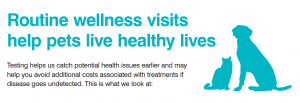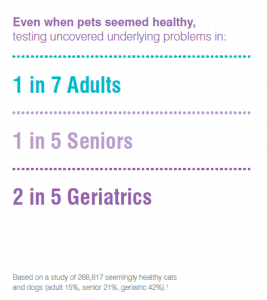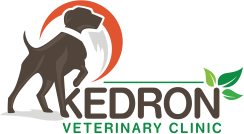Dog Vaccinations in Brisbane
At Kedron Veterinary Clinic, we offer important dog vaccinations to control infectious disease in your pets. It is essential that your puppy or dog is adequately vaccinated to help protect them and the wider pet population.
Puppy Vaccination
Puppies should receive their first vaccinations between 6 and 8 weeks old. Although they are ‘temporarily’ protected against many diseases by antibodies received through their mother’s milk, these antibodies decline in the first couple of months of their lives. This is why a series of vaccinations is necessary for puppies.
For maximum protection by vaccination, our vet can discuss a suitable puppy vaccination schedule with you. Below is a guide that will provide some direction towards a vaccination schedule for younger dogs.
Age for vaccination
8 weeks
C3:
Canine Parvovirus
Infectious Canine Hepatitis
Canine Distemper
12 weeks
C5:
Canine Parvovirus
Infectious Canine Hepatitis
Canine Distemper
Canine Parainfluenza (Canine cough)
Bordetella Bronchiseptica (Canine cough)
+Proheart SR12 (Heartworm)
16 weeks
Canine Parvovirus
Infectious Canine Hepatitis
Canine Distemper
Canine Parainfluenza (Canine cough)
6 months
Proheart SR12 (Heartworm)
Adult Dog Vaccination
Vaccinating your dog stimulates its immune system to produce antibodies against the virus, preventing it from disease. The immunity from puppy vaccination weakens over time and your pet can again become susceptible to disease. Annual health checks and booster vaccinations will provide the best protection for the life of your pet. Below are the diseases we can vaccinate your dog against.
Canine Parvovirus
Infectious Canine Hepatitis
Canine Distemper
Canine Parainfluenza (Canine cough)
Bordetella Bronchiseptica (Canine cough)+ Heartworm
Alongside your vaccination, we recommend blood and faecal screening every year to provide the best care for your pet. Pets age approximately five to seven times faster than humans do. Disease is often insidious and well advanced before the manifestation of clinical signs, underscoring the need for regular screening tests.

Pets are instinctually wired to hide clinical signs of disease from their owners, frequently resulting in a late-stage diagnosis where treatment is costly and often less likely to be effective. As pets age, the incidence and severity of disease greatly increases. Furthermore, senior and geriatric pets may have multiple concurrent disease processes, both clinical and subclinical. Since pets are unable to articulate symptoms, many painful conditions often go unrecognised and left untreated for prolonged periods of time—something that no pet owner wants for their pet.

A full chemistry profile including electrolytes, a complete blood count (CBC) and a complete urinalysis should be part of the minimum database for all preventive care visits and may be recommended on an annual or more frequent basis, depending on the age and the health status of the patient. Performing these tests on clinically normal patients allows clinicians to establish “baseline” values that in turn establish individualised reference interval limits.
After Vaccination Care
Following vaccination, your puppy or dog may be off-colour for a day or two or have some slight swelling or tenderness at the injection site. Access to food and water and a comfortable area to rest are usually all that is required for a quick recovery. However, if the response seems more severe, contact us for advice.
Common Dog Diseases
At Kedron Veterinary, we vaccinate against the following diseases for dogs.
Canine Parvovirus
Canine Parvovirus is a disease that affects dogs of all ages but is most serious in young puppies and older dogs. The virus attacks the intestines, causing blood stained diarrhoea, uncontrollable vomiting and severe abdominal pain. Dogs often die from severe dehydration despite intensive veterinary care. It is not necessary to have direct contact with other dogs for the disease to be spread. The virus is so persistent that the infected dog’s environment needs to be cleaned with a potent disinfectant to prevent spread to other dogs. Outbreaks occur regularly throughout Australia, especially in summer.
Canine Distemper
Canine distemper is a highly contagious viral disease that can affect dogs of any age with young puppies being at highest risk. Symptoms vary but can include fever, coughing, sneezing, nasal discharge, vomiting, diarrhoea, loss of appetite and depression. Muscle tremors, fits and paralysis usually occur later in the disease. Treatment is usually ineffective and the recovery rate very low. Dogs who do recover may have permanent brain damage.
Canine Hepatitis
Canine hepatitis is a viral disease which, like distemper, is extremely contagious and often fatal. Dogs of any age can become infected, but severe cases are rare in dogs over two years of age. Symptoms include high fever, depression, loss of appetite, vomiting, diarrhoea, and acute abdominal pain. In severe cases, death can occur within 24 to 36 hours. Dogs who recover may develop long-term liver and kidney problems and can act as carriers, spreading the disease to other dogs for many months.
Canine Cough
Canine cough is a condition produced by several highly infectious diseases, which can be easily spread wherever dogs congregate, such as parks, shows, obedience schools and boarding kennels. Among the infectious agents associated with canine cough is the bacterium known as Bordetella bronchiseptica and the canine viruses parainfluenza, adenovirus type 2 and distemper. Affected dogs have a dry hacking cough which can persist for several weeks. It is distressing for dogs and their owners and it is a major problem for working and sporting dogs. Pneumonia can also be a consequence of infection.
Heartworm Disease
A single bite from an infected mosquito can put your dog at risk for developing heartworm disease. An infected mosquito bites your dog, infecting it with heartworm larvae. The heartworms then mature inside your dog, living in major vessels around the heart and even sometimes inside the heart itself. It could take longer than 7 months for the heartworms to be detectable with routine testing. An adult heartworm can grow up to a foot in length, living inside your dog’s heart and lungs and causing heart failure.
Call our friendly team today on 07 3857 1785 to discuss a suitable vaccination regime for your pet puppy or dog, or fill out our online contact form.

